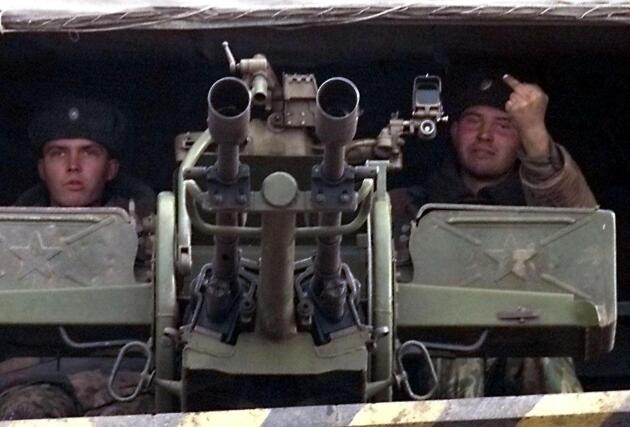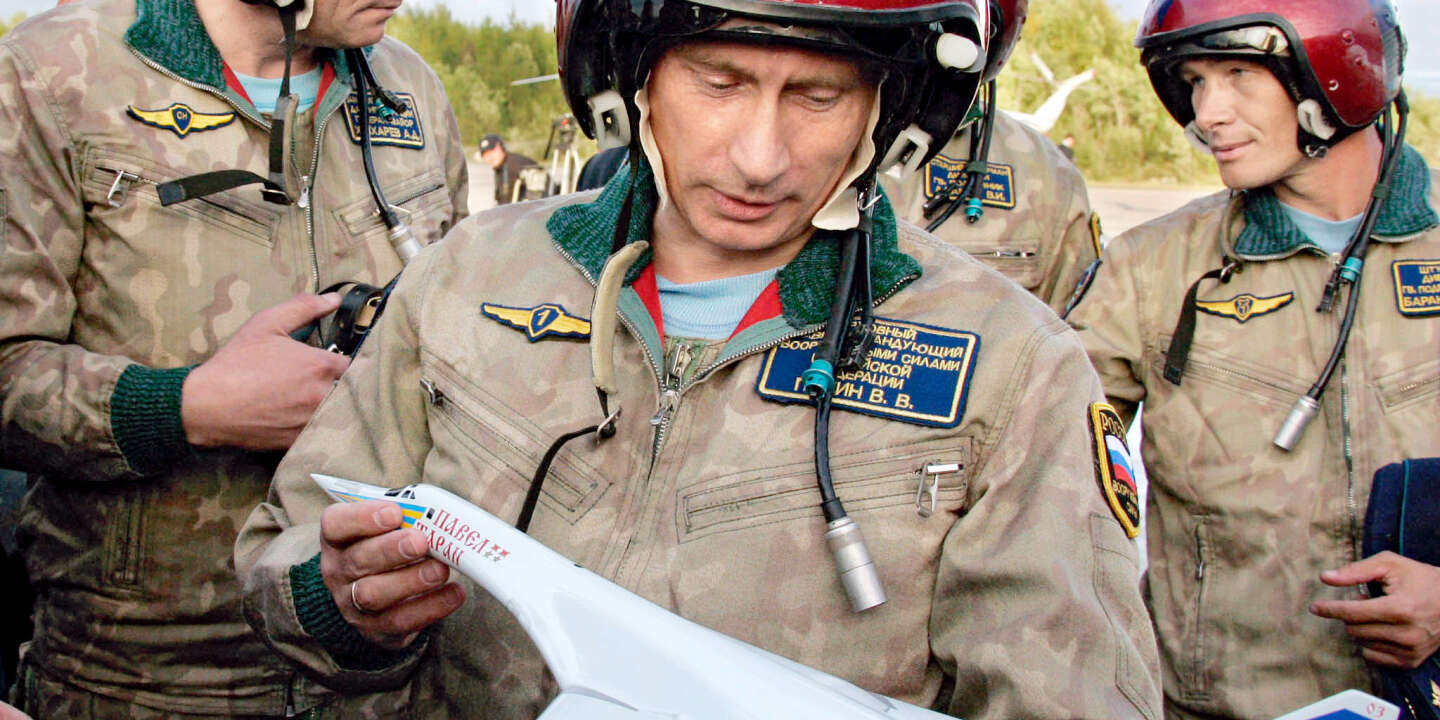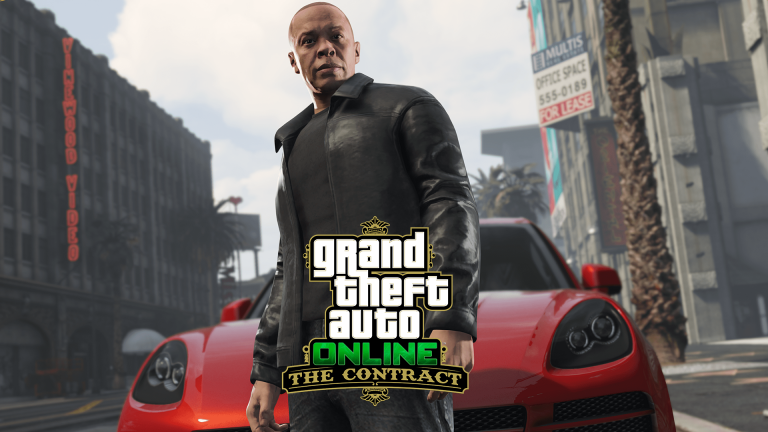StoryNever put into words, armed force is the preferred tool of the Kremlin head to impose his power and stage the confrontation with the West.
Dmitri Siline shows a big smile. On April 8, this small business owner from Ivanovo, northeast of Moscow, graciously hands out copies of 1984, by George Orwell. The famous novel describing the hell of totalitarianism after a nuclear war is all the rage in Russia. According to the economic daily Vedomosti April 12, sales rise. But the initiative of the makeshift bookseller, caught on the spot by posted a photo on social media, falls short. Once he was arrested, he now has to answer to court for the crime of … “disparagement of the Russian army”. An accusation that testifies to the absurdity of the martial order that prevails in this country, where even the word ‘war’ is banned.
In order not to have to hire him, at the risk of a 15-year prison term, the last independent Russian media have sunk themselves. Under the same pressure, citizens who dare to defy this law of March 4 are being prosecuted. The war in Ukraine does not exist. It is a “special military operation” launched by Vladimir Putin on February 24 to enslave a neighboring country, its president, Volodymyr Zelensky, and a government qualified as “Nazi Junta” † “The war presupposes that the country you are fighting against is independent, but Putin does not recognize Ukraine, in his eyes it was a police operation”, emphasizes historian Françoise Thom, a specialist in the USSR and Russia. The Ukrainian resistance, at least in the first phase of the fighting, ruined the Kremlin’s plans. The ban remains.
Vladimir Putin, who has been in power for more than 20 years, has fought four wars using the same subterfuge. The second Chechen war (1999-2009), in which he did not hesitate to pose at the wheel of a Sukhoi fighter plane, was a “anti-terrorist operation”. The 2008 war in Georgia, a campaign “to defend its citizens” in the separatist regions of South Ossetia and Abkhazia, where Russian passports had been distributed. One started in Syria in 2015, nothing but a “intervention”, finished ” on request “ of his ally Bashar Al-Assad, to fight against “against international terrorists”† In 2014, in Donbass, eastern Ukraine, the presence of Russian soldiers on the ground was simply denied.

The war is not part of the Kremlin head’s vocabulary, except when it comes to the “Great Patriotic War” of 1941-1945, the commemoration of which, on May 9, has not ceased to float year after year, in more and more grandiose manifestations, in the service, not of memory, but of a preparation of minds for self-sacrifice and for the idea that Russia, like yesterday, would be under siege. Perhaps more attention should have been paid to the small objects – these little felt slippers in the shape of a tank, for example – that have proliferated in Russian markets, or to these car hoods covered with aggressive messages referring to the conquest of Berlin in 1945 : “We can do it again.”
You still have 85.35% of this article to read. The following is for subscribers only.




